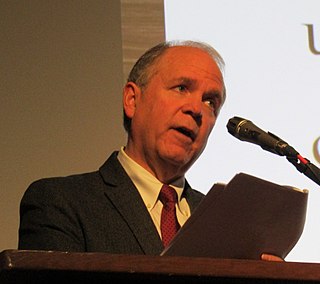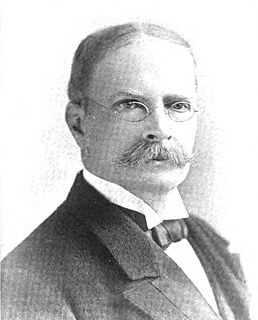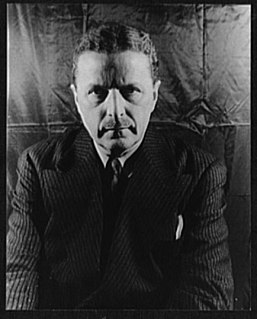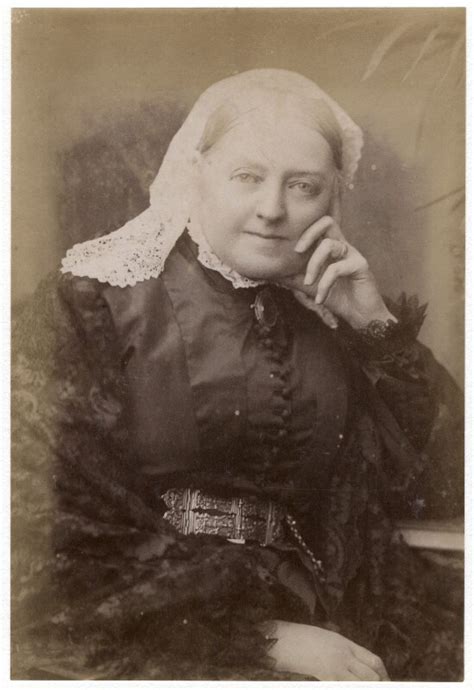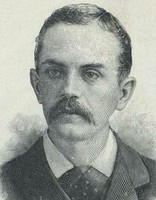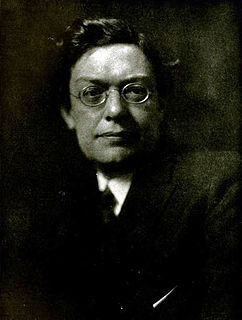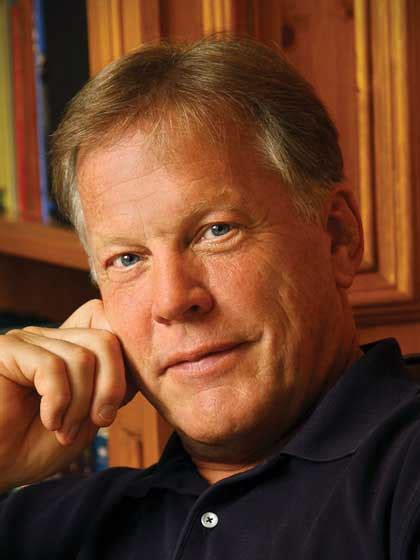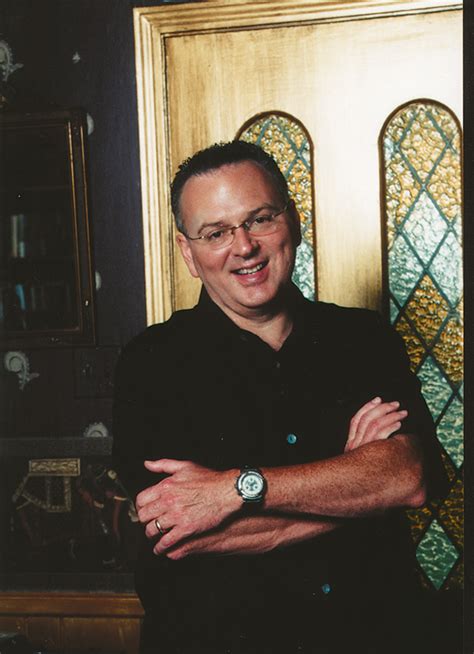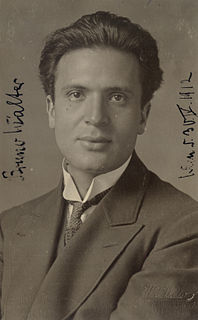Top 709 Earthly Quotes & Sayings - Page 12
Explore popular Earthly quotes.
Last updated on April 21, 2025.
A refugee is not just someone lacking in money and everything else. A refugee is vulnerable to the slightest touch: he has lost his country, his friends, his earthly belongings. He is a stranger, sick at heart. He is suspicious; he feels misunderstood. If people smile, he thinks they ridicule him; if they look serious, he thinks they don't like him. He is a full-grown tree in the dangerous process of being transplanted, with the chance of possibly not being able to take root in the new soil.
The writings of latter-day prophets clearly teach that the sorrows and sufferings endured by Adam and Eve upon their leaving the Garden of Eden were ordained by God and were a necessary part of their-and our-earthly experience. President Howard W. Hunter, then a member of the Quorum of the Twelve Apostles, taught: "We came to mortal life to encounter resistance. It was part of the plan for our eternal progress. Without temptation, sickness, pain, and sorrow, there could be no goodness, virtue, appreciation for well-being, or joy."
Out of the darkness of my life, so much frustrated, I put before you the one great thing to love on earth: the Blessed Sacrament....There you will find romance, glory, honor, fidelity, and the true way of all your loves upon earth, and more than that: death: by the divine paradox, that which ends life, and demands the surrender of all, and yet by the taste (or foretaste) of which alone can what you seek in your earthly relationships (love, faithfulness, joy) be maintained, or take on that complexion of reality, of eternal endurance, that every man's heart desires
Everything is in constant flux on this earth. Nothing keeps the same unchanging shape, and our affections, being attached to things outside us, necessarily change and pass away as they do. Always out ahead of us or lagging behind, they recall a past which is gone or anticipate a future which may never come into being; there is nothing solid there for the heart to attach itself to. Thus our earthly joys are almost without exception the creatures of a moment.
No true work since the world began was ever wasted; no true life since the world began has ever failed. Oh, understand those two perverted word, failure and success and measure them by the eternal, not the earthly, standard. When after thirty obscure, toilsome, unrecorded years in the shop of the village carpenter, one came forth to be pre-eminently the man of sorrows, to wander from city to city in homeless labors, and to expire in lonely agony upon the shameful cross -- was that a failure.
The best minds will tell you that when a man has begotten a child he is morally bound to tenderly care for it, protect it from hurt, shield it from disease, clothe it, feed it, bear with its waywardness, lay no hand upon it save in kindness and for its own good, and never in any case inflict upon it a wanton cruelty. God's treatment of his earthly children, every day and every night, is the exact opposite of all that, yet those best minds warmly justify these crimes, condone them, excuse them, and indignantly refuse to regard them as crimes at all, when he commits them.
The longer I live here, the better satisfied I am in having pitched my earthly camp-fire, gypsylike, on the edge of a town, keeping it on one side, and the green fields, lanes, and woods on the other. Each, in turn, is to me as a magnet to the needle. At times the needle of my nature points towards the country. On that side everything is poetry. I wander over field and forest, and through me runs a glad current of feeling that is like a clear brook across the meadows of May. At others the needle veers round, and I go to town--to the massed haunts of the highest animal and cannibal.
I cannot regret it. They tell us in the temple that true joy is found only in freedom from the Wheel that is death and rebirth, that we must come to despise earthly joy and suffering, and long only for the peace of the presence of the eternal. Yet I love this life on Earth, Morgan, and I love you with a love that is stronger than death, and if sin is the price of binding us together, life after life across the ages, then I will sin joyfully and without regret, so that it brings me back to you, my beloved!
If you put something fragrant on to burning coals, you motivate those who approach to come back again and to stay near, but if instead you put on something with an unpleasant, oppressive smell, you repel them and drive them away. It is the same with the mind. If your attention is occupied with what is holy, you make yourself worthy of being visited by God, since this is the sweet savour which God catches scent of. On the other hand, if you nurture evil, foul and earthly thoughts within you, you remove yourself from God's supervision and unfortunately make yourself worthy of His aversion.
Love is the simplest of all earthly things.
It needs no grandeur of celestial trust
In more than what it is, no holy wings:
It stands with honest feet in honest dust,
And is the body's blossoming in clear air
Of trustfulness and joyance when alone
Two mortals pass beyond the hour's despair
And claim that Paradise which is their own.
Amid a universe of sweat and blood,
Beyond the glooms of all the nations' hate,
Lovers, forgetful of the poisoned mood
Of the loud world, in secret ere too late
A gentle sacrament may celebrate
Before their private altar of the good.
Dear God, I prayed, all unafraid (as we're inclined to do), I do not need a handsome man but let him be like You; I do not need one big and strong nor yet so very tall, nor need he be some genius, or wealthy, Lord, at all; but let his head be high, dear God, and let his eye be clear, his shoulders straight, whate'er his state, whate'er his earthly sphere; and let his face have character, a ruggedness if soul, and let his whole life show, dear God, a singleness of goal; then when he comes (as he will come) with quiet eyes aglow, I'll understand that he's the man I prayed for long ago.
God is the highest good of the reasonable creature. The enjoyment of him is our proper; and is the only happiness with which our souls can be satisfied. To go to heaven, fully to enjoy God, is infinitely better than the most pleasant accommodations here. Better than fathers and mothers, husbands, wives, or children, or the company of any, or all earthly friends. These are but shadows; but the enjoyment of God is the substance. These are but scattered beams; but God is the sun. These are but streams; but God is the fountain. These are but drops, but God is the ocean.
Without undervaluing any other human agency, it may be safely affirmed that the Common School, improved and energized, as it can easily be, may become the most effective and benignant of all the forces of civilization. Two reasons sustain this position. In the first place, there is a universality in its operation, which can be affirmed of no other institution whatever... And, in the second place, the materials upon which it operates are so pliant and ductile as to be susceptible of assuming a greater variety of forms than any other earthly work of the Creator.
The quality of mercy is not strain'd, It droppeth as the gentle rain from heaven Upon the place beneath: it is twice blest; It blesseth him that gives and him that takes: 'Tis mightiest in the mightiest: it becomes The throned monarch better than his crown; His sceptre shows the force of temporal power, The attribute to awe and majesty, Wherein doth sit the dread and fear of kings; But mercy is above this sceptred sway; It is enthroned in the hearts of kings, It is an attribute to God himself; And earthly power doth then show likest God's When mercy seasons justice.
What it 't to us, if taxes rise or fall,
Thanks to our fortune, we pay none at all.
Let muckworms who in dirty acres deal,
Lament those hardships which we cannot feel,
His grace who smarts, may bellow if he please,
But must I bellow too, who sit at ease?
By custom safe, the poets' numbers flow,
Free as the light and air some years ago.
No statesman e'er will find it worth his pains
To tax our labours, and excise our brains.
Burthens like these with earthly buildings bear,
No tributes laid on castles in the air.
The uniting of Orthodoxy with state absolutism came about on the soil of a non-belief in the Divineness of the earth, in the earthly future of mankind; Orthodoxy gave away the earth into the hands of the state because of its own non-belief in man and mankind, because of its nihilistic attitude towards the world. Orthodoxy does not believe in the religious ordering of human life upon the earth, and it compensates for its own hopeless pessimism by a call for the forceful ordering of it by state authority.
How often we say about our earthly friends, "I really would like to have a good quiet settled talk with them so that I can really get to know them." And shouldn't we feel the same about our Heavenly Friend, that we may really get to know Him? These thoughts have taught me the importance of the children of God taking time to commune daily with their Father, so that they may get to know His mind and to understand better what His will is.
You risked your life, but what else have you ever risked? Have you risked disapproval? Have you ever risked economic security? Have you ever risked a belief? I see nothing particularly courageous about risking one's life. So you lose it, you go to your hero's heaven and everything is milk and honey 'til the end of time. Right? You get your reward and suffer no earthly consequences. That's not courage. Real courage is risking something that might force you to rethink your thoughts and suffer change and stretch consciousness. Real courage is risking one's clichés.
No matter how much we may study, it is not possible to come to know God unless we live according to His commandments, for God is not know by science, but by the Holy Spirit. Many philosophers and learned men came to the belief that God exists, but they did not know God. It is one thing to belief that God exists and another to know Him. If someone has come to know God by the Holy Spirit, his soul will burn with love for God day and night, and his soul cannot be bound to any earthly thing.
You go first. Go through the door before me. Enter the limousine while I wait by your side. Enter the shops while I stand behind, guarding your back. Sit at the table before me. Please, sample the tastiest morsels while I sit quietly. My desire is that you go first, in every occasion of earthly life. Only once will I go before you, And that will be at my last moment. For when death claims us, you must go last. Because I can't live one second without you.
Now suppose both death and hell were utterly defeated. Suppose the fight was fixed. Suppose God took you on a crystal ball trip into your future and you saw with indubitable certainty that despite everything — your sin, your smallness, your stupidity — you could have free for the asking your whole crazy heart’s deepest desire: heaven, eternal joy. Would you not return fearless and singing? What can earth do to you, if you are guaranteed heaven? To fear the worst earthly loss would be like a millionaire fearing the loss of a penny — less, a scratch on a penny.
Remain faithful to the earth, my brothers, with the power of your virtue. Let your gift-giving love and your knowledge serve the meaning of the earth. Thus I beg and beseech you. Do not let them fly away from earthly things and beat with their wings against eternal walls. Alas, there has always been so much virtue that has flown away. Lead back to the earth the virtue that flew away, as I do—back to the body, back to life, that it may give the earth a meaning, a human meaning.
Tie your heart at night to mine, love, and both will defeat the darkness like twin drums beating in the forest against the heavy wall of wet leaves. Night crossing: black coal of dream that cuts the thread of earthly orbs with the punctuality of a headlong train that pulls cold stone and shadow endlessly. Love, because of it, tie me to a purer movement, to the grip on life that beats in your breast, with the wings of a submerged swan, So that our dream might reply to the sky's questioning stars with one key, one door closed to shadow.
The irrevocable Hand
That opes the year's fair gate, doth ope and shut
The portals of our earthly destinies;
We walk through blindfold, and the noiseless doors
Close after us, for ever.
Pause, my soul,
On these strange words - for ever - whose large sound
Breaks flood-like, drowning all the petty noise
Our human moans make on the shores of Time.
O Thou that openest, and no man shuts;
That shut'st, and no man opens - Thee we wait!
Because there is something in the touch of flesh with flesh which abrogates, cuts sharp and straight across the devious intricate channels of decorous ordering, which enemies as well as lovers know because it makes them both:---touch and touch of that which is the citadel of the central I-Am's private own: not spirit, soul; the liquorish and ungirdled mind is anyone's to take in any any darkened hallway of this earthly tenement. But let flesh touch with flesh, and watch the fall of all the eggshell shibboleth of caste and color too.
The possessions God allows us to have are intended for our use, not our enjoyment. Trying to squeeze something out of them that was never in them in the first place is a futile endeavor. A cow's udders, gently pressed, will yield sweet milk, nourishing and refreshing. Applying more and more pressure will not produce greater quantities of milk. We lose the good of material things by expecting too much from them. Those who try hardest to please themselves with earthly goods find the least satisfaction in them.
There is an earthly sun, which is the cause of all heat, and all who are able to see may see the sun; and those who are blind and cannot see him may feel his heat. There is an Eternal Sun, which is the source of all wisdom, and those whose spiritual senses have awakened to life will see that sun and be conscious of His existence; but those who have not attained spiritual consciousness may yet feel His power by an inner faculty which is called Intuition.
Nothing feebler than a man does the earth raise up, of all the things which breathe and move on the earth, for he believes that he will never suffer evil in the future, as long as the gods give him success and he flourishes in his strength; but when the blessed gods bring sorrows too to pass, even these he bears, against his will, with steadfast spirit, for the thoughts of earthly men are like the day which the father of gods and men brings upon them.
Men are anxious to improve their circumstances, but are unwilling to improve themselves; they therefore remain bound. The man who does not shrink from self-crucifixion can never fail to accomplish the object upon which his heart is set. This is true of earthly as of heavenly things. Even the man whose object is to acquire wealth must be prepared to make great personal sacrifices before he can accomplish his object; and how much more so he who would realize a strong and well-poised life.
Let us truly be a temple-attending and temple-loving people...We should not go only for our kindred dead, but also for the personal blessings of temple worship, for the sanctity and the safety that are within those hallowed and consecrated walls. As we attend the temple, we learn more richly and deeply the purpose of life and the significance of the atoning sacrifice of the Lord Jesus Christ. Let us make the temple, together with temple worship and temple covenants and temple marriage, our ultimate earthly goal and the supreme mortal experience.
What if tomorrow someone digs up definitive proof that Jesus had a real, earthly, biological father named Larry, and archeologists find Larry's tomb and do DNA samples and prove beyond a shadow of a doubt that the virgin birth was just a bit of mythologizing the Gospel writers threw in to appeal to the followers of the Mithra and Dionysian religious cults that were hugely popular at the time of Jesus, whose gods had virgin births? Could you still be a Christian? Is the way of Jesus still the best possible way to live?
In a world where success is the measure and justification of all things the figure of Him who was sentenced and crucified remains a stranger and is at best the object of pity. The world will allow itself to be subdued only by success. It is not ideas or opinions which decide, but deeds. Success alone justifies wrongs done With a frankness and off-handedness which no other earthly power could permit itself, history appeals in its own cause to the dictum that the end justifies the means The figure of the Crucified invalidates all thought which takes success for its standard.
To experience thinking outside the brain is to enter a world of instantaneous connections that make ordinary thinking (i.e those aspects limited by the physical brain and the speed of light_ seem like some hopelessly sleepy and plodding event. Our truest, deepest self is completely free. It is not crippled or compromised by past actions or concerned with identity or status. It comprehends that it has no need to fear the earthly world, and therefore, it has no need to build itself up through fame or wealth or conquest.
How peacefully he sleep!
Yet may his ever-questing spirit, freed at length
from all the frettings of this little world,
Wander at will among the uncharted stars.
Fairfield his name. Perchance celestial fields
disclosing long sought secrets of the past
Spread 'neath his enraptured gaze
And beasts and men that to his earthly sight
were merely bits of stone shall live again to
gladden those eager eyes.
o let us picture him-enthusiast-scientist-friend-
Seeker of truth and light through all eternity!
In all trouble you should seek God. You should not set Him over against your troubles, but within them. God can only relieve your troubles if you in your anxiety cling to Him. Trouble should not really be thought of as this thing or that in particular, for our whole life on earth involves trouble; and through the troubles of our earthly pilgrimage we find God.
Women come to me and would never tell a male guru the things that they tell me. to me and would never besiege the male guru with some of the things that I hear. And that is because mother is mother and that is the phenomenal thing, it's the most irreplaceable thing in the world because whether we're an earthly mother or a spiritual mother, a divine mother, and everyone is divine by the way, we all have the power of divinity, the power of full consciousness, whether we are awakened to the potential of it all is a different matter.
Nature that framed us of four elements, Warring within our breasts for regiment, Doth teach us all to have aspiring minds: Our souls, whose faculties can comprehend The wondrous architecture of the world, And measure every wandering planet's course, Still climbing after knowledge infinite, And always moving as the restless spheres, Wills us to wear ourselves, and never rest, Until we reach the ripest fruit of all, That perfect bliss and sole felicity, The sweet fruition of an earthly crown.
The earthly form of Christ is the form that died on the cross. The image of God is the image of Christ crucified. It is to this image that the life of the disciples must be conformed; in other words, they must be conformed to his death (Phil 3.10, Rom 6.4) The Christian life is a life of crucifixion (Gal 2.19) In baptism the form of Christ's death is impressed upon his own. They are dead to the flesh and to sin, they are dead to the world, and the world is dead to them (Gal 6.14). Anybody living in the strength of Christ's baptism lives in the strength of Christ's death.
Our starting-point must be the fact that God cannot be named... no mind has yet contained or language embraced God's substance in its fullness. No, we use facts connected with Him to outline qualities that correspond with Him, collecting a faint and feeble mental image from various quarters. Our noblest theologian is not one who has discovered the whole - our earthly shackles do not permit us the whole - but one whose mental image is by comparison fuller, who has gathered in his mind a richer picture, outline, or whatever we call it, of the truth.
I have an unquenchable desire to slow down and find my life going deeper in my walk with Christ. I want to meet him in the depths of my soul, away from the stress and press of everything on top. A relationship with Christ is the key to fulfilling our deepest longings. All of life is about filling the void that sin and separation from him have created within. Filling the emptiness with piles of things, earthly friendships, satisfying experiences, and sensual encounters ultimately proves to achieve less than what we had hoped for. Christ is the only one who fits.
Christ is our hope, our cleansing and santification, our resurrection, life and repose. He alone is what we all need, and therefore, the Orthodox Church constantaly pronounces these words aloud so that we may hear them during Holy Services of the Church, and be constantly renewed. For we are inclined to forget the only thing we need. With death all will be taken from us, all earthly goods, riches, beauty of body and raiment, spacious dwellings, etc., but the virtue of the soul, that incorruptible raiment, shall remain with us eternally.
I have read of a glass kept in an idol temple in Smyrna that would make beautiful things appear deformed, and deformed things appear beautiful; carnal sense is such a glass to wicked men, it makes heavenly things which are beautiful to appear deformed, and earthly things which are deformed to appear beautiful.
When Jesus warns us not to store up treasures on earth, it's not just because wealth might be lost; it's because wealth will always be lost. Either it leaves us while we live, or we leave it when we die. No exceptions....Realizing its value is temporary should radically affect our investment strategy.... According to Jesus, storing up earthly treasures isn't simply wrong. It's just plain stupid.
As a moral and social institution, a weekly rest is invaluable. It is a quiet domestic reunion for the bustling sons of toil. It ensures the necessary vacation in those earthly and turbulent anxieties and affections, which would otherwise become inordinate and morbid. It brings around a season of periodical neatness and decency, when the soil of weekly labour is laid aside, and men meet each other amidst the decencies of the sanctuary, and renew their social affections. But above all, a Sabbath (one day of rest in seven) is necessary for man's moral and religious interests.
A home is much more than a house built of lumber, brick, or stone. A home is made of love, sacrifice, and respect. We are responsible for the homes we build. We must build wisely, for eternity is not a short voyage. There will be calm and wind, sunlight and shadows, joy and sorrow. But if we really try, our home can be a bit of heaven here on earth. The thoughts we think, the deeds we do, the lives we live not only influence the success of our earthly journey, they also mark the way to our eternal goals.
It is often to be observed, that as in digging for precious metals in the mines, much earthly rubbish has first to be troublesomely handled and thrown out ; so, in digging in one s soul for the fine gold of genius, much dulness and common-place is first brought to light. Happy would it be, if the man possessed in himself some receptacle for his own rubbish of this sort: but he is like the occupant of a dwelling, whose refuse cannot be clapped into his own cellar, but must be deposited in the street before his own door, for the public functionaries to take care of.
There have always been dreamers. Men and women who catch a glimpse of something beyond themselves who dare to reach for goals and visions. .. Yet no earthly dreamer can match the greatest of them all, the Dreamer who died on the cross to make His dream a reality. John 1:1 says, "In the beginning was the Word." The literal meaning of logos, the original Greek term translated as "Word," is idea, thought or blueprint. It is an ancient Greek theatrical term describing the work of a playwright as he conceives, or dreams up, the plot of a play. So we could say, "In the beginning was the dream".
I have increasingly become conversant with Pythagoras' and Goethe's idea of a primordial music, not perceptible to the sensuous ear, but sounding and soaring throughout the cosmos. Tracing it to such exalted origins, I begin to understand more deeply the essence of our art and its elemental power over the human soul. Man, being a creature of Nature and subject to the cosmic influences that inform all earthly beings, must needs have been under the sway of that music from his earliest days; his organism reverberated with its vibrations and received it's rhythmic impulses.
"The Universe repeats itself, with the possible exception of history." Of all earthly studies history is the only one that does not repeat itself. ... Astronomy repeats itself; botany repeats itself; trigonometry repeats itself; mechanics repeats itself; compound long division repeats itself. Every sum if worked out in the same way at any time will bring out the same answer. ... A great many moderns say that history is a science; if so it occupies a solitary and splendid elevation among the sciences; it is the only science the conclusions of which are always wrong.

